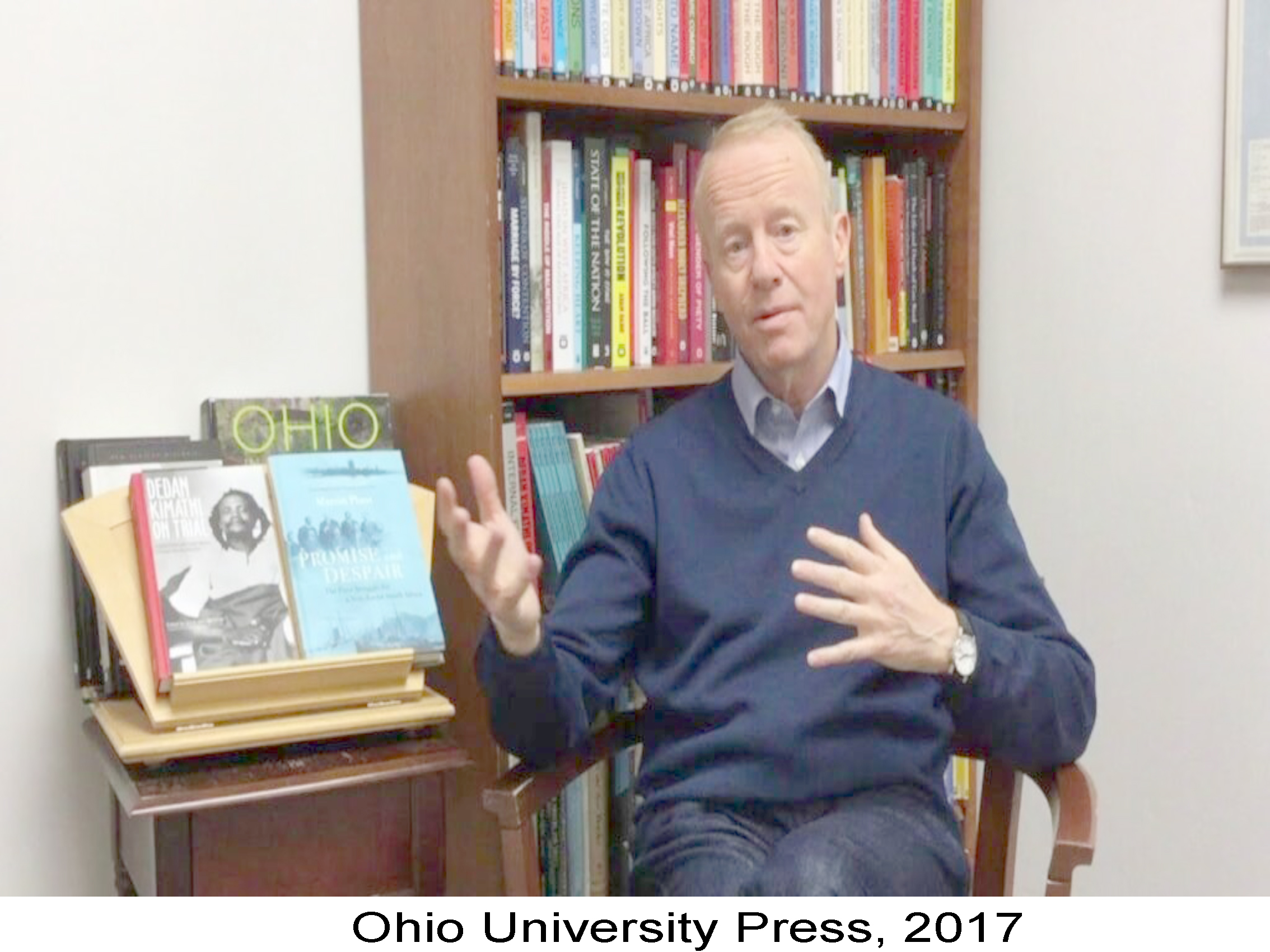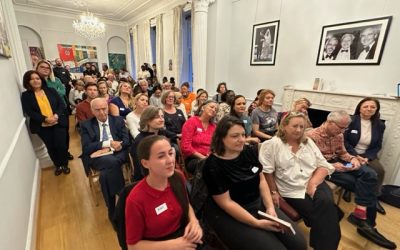Join acclaimed storyteller Martin Plaut in a captivating workshop designed to empower you with the skills to weave narratives that not only tell a story but also connect deeply with diverse audiences.
Who better to give advice on ‘How to tell a story that finds an audience’. we asked Martin Plaut to be our keynote speaker as he has the right qualifications. . As the former Africa editor for the BBC World Service News and publishing several books on the subject of South African and East African political affairs, Martin knows how to tell a story that reaches an audience.
Naturally then, the online hour event hosted by TGIUK passed quickly. Still, there was much to learn:
“The first question is why? Everybody has a story but is it one that others want to hear?”
From the inception of Martin’s presentation to its end, Martin asks us to always keep in mind our target audience.
I was surprised to see that Martin had based his presentation around an author’s audience. I expected him to speak more on the process of writing, but the more he explained why knowing your intended audience is so important, the more I began to understand.
‘Who are we writing for?’ That question is equally as important as what you are writing when you want your story to be heard. This session was for storytellers after all. Naturally then, as we put pen to paper, we should be keeping our intended audience in mind, seeking to craft our work as if we are in direct communication with them.
“The medium is the message”
So, we have our message and our audience in mind, now we come onto the subject of delivering it. Martin explained how the form of your writing heavily impacts the message itself. He pointed to several examples, comparing how the radio can be used as a medium for critical messages whereas television emphasises showing, rather than telling.
Indeed, your choice of medium very much impacts the ‘how’ part in ‘how to tell a story that finds an audience’. The medium indicates the urgency of your message; if you telling your story visually, you give it context, if its auditory, you give much more detail. The choice of medium might be obvious to us. Yet, Martin’s examples demonstrated to me that it might be good to consider our stories framed in different mediums, to see which one would best fit our intended audience and message.
“Sit down and scribble”
Now we finally come down to writing. Well, to planning. Martin explained that it is best to plan before you start to write your piece. He noted that planning your work does not mean you will have to follow it faithfully, rather we are more inclined to not stick to it. However, the importance of planning lies in giving us a rough sense of direction and enables us to start filling a blank page.
Certainly, I find planning gives a sense of security before I start writing. I never stick to the plan; in truth I always seem to go off in a completely different direction. But having that plan gives you evidence that your ideas evolve and that can be more encouraging than beginning to write with little sense of direction.
“Every piece I had written for the BBC newsroom was changed, almost always for the better.”
Perhaps one of the toughest parts of writing a story is receiving criticism. It’s a sentiment that Martin himself shared, he recalled how pieces he thought did not need editing were changed but acknowledged it was for the best. For new writers he advised looking to friends for feedback, and explicitly advised against looking to family as they might often be inclined to praise.
Of course, a writer would not want praise during their process of writing and then receive criticism after their work is published. Martin’s advice felt comparable to my exam days; you want to focus on the advice to improve your work so that your final exam receives more praise than improvements. Whilst Martin also mentioned you need to make up your own mind over whether the advice is something you will take on board; it is nonetheless always important to receive feedback from multiple people.
“You see it in a new light.”
Revising and editing your work is also a crucial step in the process of writing a story. When continuously looking at your work, one might begin to have a fixed mind-set towards it. So, Martin advises taking some time out and then coming back to your work.
Taking a break may seem like a step that can be overlooked easily. Nevertheless, the result of ia pause is you gain new perspective on your work, this is vital. In fact, approaching our work again with a different perspective allows us to become the critic, as someone who is detached from the process of writing and instead focusing on how it looks in its final stages. So, taking a break is a step that really does appear more important than it seems.
“Having a social media presence is a great intermittent step.”
The presence of social media in the storytelling process was not a part of Martin’s presentation but became a significant part of discussion in our Q&A session. Martin’s thoughts on including social media in a storyteller’s writing process was advice that I found particularly interesting as it applies now more than ever.
Part of answering that first question Martin asked, ‘Everybody has a story but is it one that others want to hear?’, can be in-part answered by having a social media platform that shares the process of writing. I think of the process of writing as something that is very much tied with the writer, only the final product is released to the audience. Yet, in this media-saturated age where you are competing to have your voice heard, having a social media platform where you can demonstrate that there is interest in your work before it is even finished is invaluable. Certainly, if your followers are made up of people who you view as your target audience, your social media could be another significant source of feedback.
“If you only remember one thing I have said today, please remember this: ‘Your audience is absolutely critical.”
Audience, medium, planning, criticism and social media. All things that youmight think we should consider more after we have our initial ideas. But, as I have learnt in this workshop, these steps should be present in our thinking from the beginning of our writing processes. Ultimately, as Martin stressed at the end of his presentation, we should always be thinking about our audience before our story reaches that audience. Indeed, from thinking about our audience, we can choose the right medium; we can plan our stories in a way that is engaging to them; we could receive valuable criticism from friends who fall into the same category as our audience; we could engage with our audience before we have even published our work.
So, to reiterate as Martin did, how does a storyteller write a story that reaches an audience? By always thinking of that audience in our process of writing.







